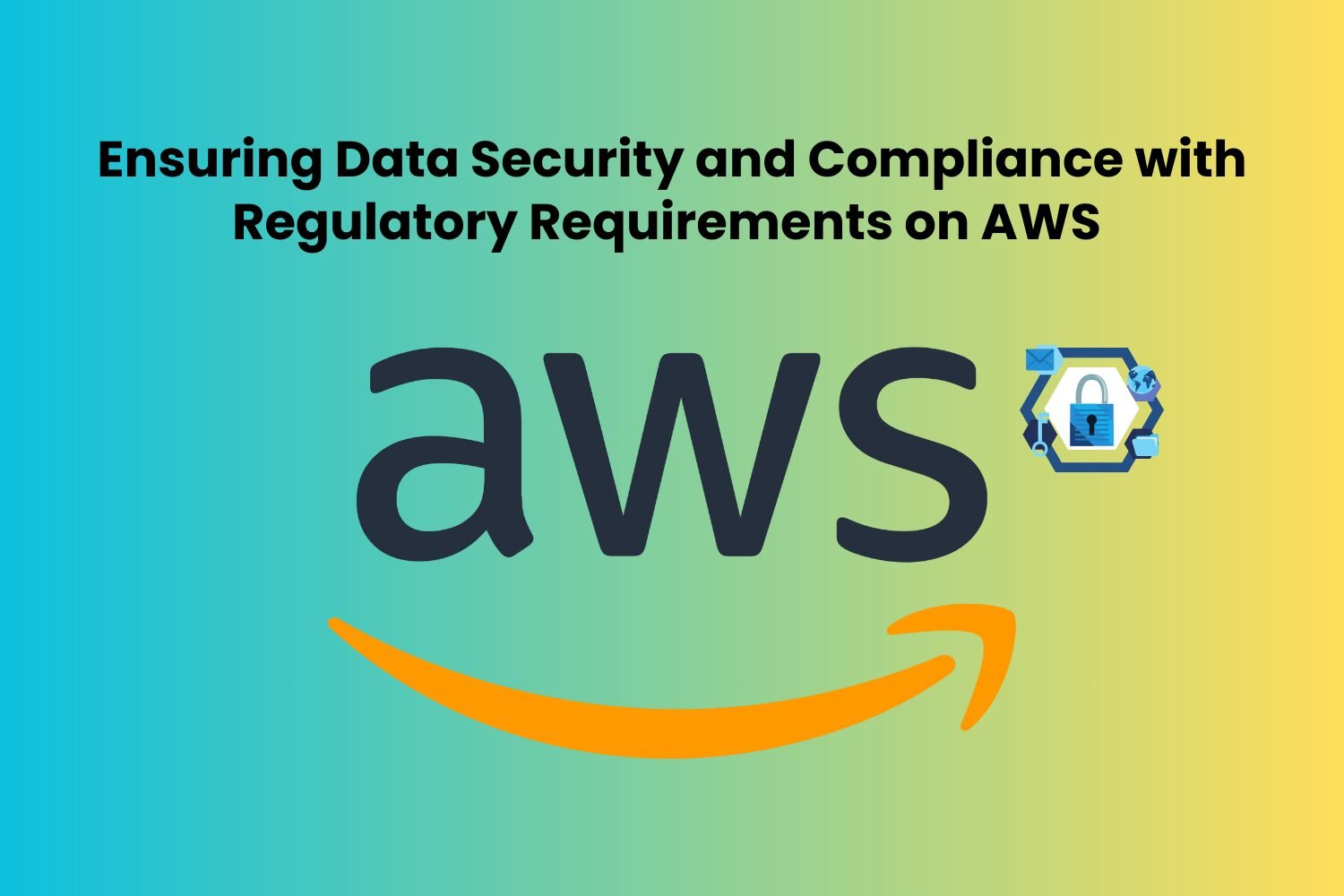Where data serves as the lifeblood of modern enterprises, ensuring its security and compliance with regulatory standards is paramount. With the exponential growth of data, coupled with evolving regulatory frameworks, organisations face mounting challenges in safeguarding sensitive information.
Leveraging robust platforms like Amazon Web Services (AWS) becomes essential not only for managing vast volumes of data but also for upholding stringent security protocols and meeting regulatory mandates.
In this blog, we delve into data security and compliance on AWS, exploring strategies to mitigate risks and adhere to regulatory requirements. Whether you’re embarking on an AWS Course or delving into AWS Big Data solutions, understanding these principles is foundational.
Table of Contents
- Understanding the Regulatory Landscape
- AWS Security Best Practices
- Data Governance and Compliance on AWS
- Leveraging AWS Big Data Solutions
- Data Resilience and Disaster Recovery
- Conclusion
Understanding the Regulatory Landscape
Before delving into data security measures, comprehending your industry’s regulatory landscape is crucial. Depending on your geographic location and the nature of your business, you may be subject to a myriad of regulations such as GDPR, HIPAA, CCPA, or industry-specific standards like PCI DSS.
These regulations dictate how organisations collect, store, process, and transmit data, imposing strict penalties for non-compliance. By aligning with these standards, enterprises not only mitigate legal risks but also foster trust among customers by demonstrating a commitment to data protection.
AWS Security Best Practices
AWS provides a comprehensive suite of tools and services designed to fortify data security across various infrastructure layers. Implementing a robust security framework entails adhering to AWS’s best practices, encompassing identity and access management (IAM), encryption, network security, and monitoring.
Organisations can enforce granular access controls by leveraging IAM, ensuring that only authorised users can access sensitive resources. Encryption, both in transit and at rest, adds an additional layer of protection, safeguarding data from unauthorised interception or access.
Moreover, implementing network security measures such as firewalls, DDoS protection, and VPC (Virtual Private Cloud) configurations helps thwart malicious activities and insider threats. Continuous monitoring through AWS CloudTrail and Amazon GuardDuty enables real-time threat detection and response, enhancing the overall security posture.
Data Governance and Compliance on AWS
In addition to fortifying infrastructure security, organisations must establish robust data governance frameworks to ensure compliance with regulatory requirements. Data governance encompasses policies, processes, and controls governing data asset collection, usage, and disposal.
On AWS, implementing data governance involves defining data classification policies, access controls, data retention policies, and auditing mechanisms. Leveraging services like AWS Key Management Service (KMS) facilitates centralised management of encryption keys, enabling organisations to enforce encryption policies consistently.
Furthermore, AWS provides a plethora of compliance certifications and attestations, including SOC 2, ISO 27001, and FedRAMP, which attest to the platform’s adherence to industry best practices and regulatory standards.
Leveraging AWS Big Data Solutions
As organisations grapple with the deluge of data generated daily, harnessing the power of big data analytics becomes imperative for deriving actionable insights and driving informed decision-making.
AWS offers many big data services, such as Amazon EMR, Amazon Redshift, and Amazon Athena, enabling organisations to process, analyse, and visualise vast datasets at scale.
However, while harnessing the potential of big data, organisations must remain vigilant about data security and privacy implications. Implementing encryption, access controls, and anonymisation techniques ensures that sensitive data remains protected throughout the analytics lifecycle.
Data Resilience and Disaster Recovery
In the event of unforeseen disasters or cyber-attacks, organisations must have robust data resilience and disaster recovery mechanisms to minimise downtime and data loss. AWS provides a suite of services such as Amazon S3 replication, AWS Backup, and Amazon Aurora Multi-AZ deployments, enabling organisations to replicate data across multiple availability zones and regions, thereby ensuring high availability and durability.
Automated backup and recovery processes and regular testing and validation strengthen resilience and foster business continuity.
Conclusion
In an era of digital transformation and data proliferation, safeguarding data integrity and ensuring compliance with regulatory mandates are imperative for organisational success and sustainability.
AWS, with its robust security features, compliance certifications, and scalable infrastructure, serves as a cornerstone for organisations seeking to fortify their data security posture while harnessing the power of big data analytics. Whether embarking on an AWS course or exploring AWS big data solutions, prioritising data security and compliance lays the foundation for innovation, trust, and resilience in the digital age.

